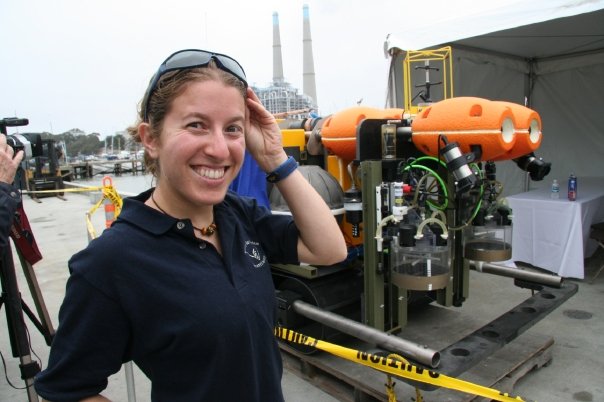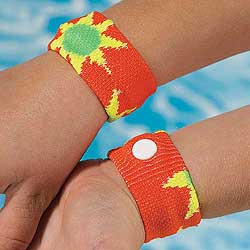
by Amanda Kahn, Invertebrate Zoology and Molecular Ecology Lab
I went out to sea yesterday and it was INCREDIBLE! We saw animals we’d never seen before, explored an underwater canyon that is deeper than the Grand Canyon, and spent a beautiful day out on calm seas aboard the R/V Point Lobos. As I was miles away from solid ground, I pondered the irony of my choice of career – you see, I get seasick. Horribly seasick. I was the only person running out to the side of the boat every half hour to, uh, fertilize the ocean. I’ve tried taking Dramamine, eating saltine crackers and drinking ginger ale, pressure point bands, even wearing a paper bag against my stomach (which kind of works, actually…), but nothing fully gets rid of that queasy feeling. So how can I tolerate going out and being sick all day? Basically, I am really excited about learning about things that live under the ocean. So interested, in fact, that I don’t mind the seasickness so much! I wanted to write about this because people who get seasick should know that it is still possible to have a successful, happy career in marine science.
First of all, some tips to help eliminate or reduce seasickness:

- Medications such as Dramamine, Bonine, and Marezine are helpful. They are most effective if you take one pill the night before going out on a boat, then another about one hour before the boat is underway.
- Pressure point bands work for some people. These look like bracelets with a little knob that presses on a pressure point on the inside of your wrist. If you start feeling sick, you can press the knobs into the pressure point.
- Ginger, whether in the form of fresh, dried, candied, or ginger ale, helps ease upset stomachs (although I personally think candied ginger tastes terrible!).
- Carbonated beverages (especially ginger ale) are also helpful for upset stomachs.
- Surprisingly, keeping some food in your stomach can be really helpful. I don’t start feeling really sick until my stomach is completely empty.
- Scopalamine is a prescription drug that you can ask for. It comes in a little patch that you wear behind your ear. It releases medication into your body slowly over time. Some people get a little loopy on this, but it is supposed to be one of the best medications.
- A brown paper bag (huh?). A friend of mine just told me about this one, and basically, you just put a paper bag under your clothes, in contact with your stomach.
These solutions would not all be necessary if so many people didn’t end up with the same problem that I have. Seasickness is common! Everyone figures out the best way to deal with it (for example, my favorite is to take Bonine, wear pressure point bands, drink ginger ale, and keep some food in my stomach). The other scientist on yesterday’s cruise wore a Scopalamine patch. If you tend to get seasick, you’re not alone! And you can still pursue marine science. In my next post, I’ll tell you about some of the amazing things we saw on our cruise, and you’ll see why seasickness is minor compared to the amazing coolness that is marine science and oceanography. *Sigh*
[youtube=http://www.youtube.com/watch?v=Gjzkf1xiQ-8]
You can already check out some of the cool things people do at sea with this video! Also, share your favorite seasickness remedies by leaving a comment!

